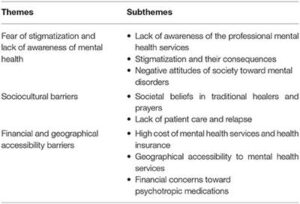How to Prevent Mental Disability Discrimination at Work
admin
- 0
Mental Disability Discrimination at Work
Employers can prevent mental disability discrimination in the workplace by providing reasonable accommodations for employees. Employees with mental health issues can request a flexible schedule or a part-time schedule until their medication has stabilized. They may need white-noise earphones, remote meetings, or work-from-home accommodations. They may need a change in management style. If an employee does not want to disclose the nature of their disability, they can simply provide a general description.
Generally, an employer must make reasonable accommodations if they are aware of the disability, even if they do not ask about it. Unless they are reasonably required to know about the disability, they cannot ask about it during the interview process or during the job itself. However, employers can find out about your disability before hiring you and ask for medical documentation of your condition. While medical information is confidential, it cannot be shared with other employees.
disability discrimination at workplace
While there are many rules about making reasonable accommodations, you should be aware that this is not enough. Whether a rule is justified by an employer’s objective, or by the nature of the condition itself, it should be subject to law. Moreover, you should always speak up when you encounter any workplace discrimination. If you’re facing a difficult time in getting a job, you should inform the employer about your disability.

How to Prevent Mental Disability Discrimination at Work
Employers should consider the mental health of their employees when considering disciplinary measures. While disciplinary actions are appropriate for poor performance, employees may not be willing to disclose their problems for fear of being stigmatized. Employers should anticipate these potential issues by creating a culture in which staff can discuss their problems. They should also make sure to provide appropriate training for their staff about mental health and disability. It will ensure that the workplace is a place where people feel comfortable discussing their conditions.
It is also important to remember that a mental disability discrimination may result in a protected status under the ADA and applicable state laws. For example, the ADA provides protections for employers who fail to provide reasonable accommodations for their employees. As long as the requested accommodation doesn’t result in a business hardship, employers must provide them. For example, a restaurant owner may refuse a mental health-related request for a therapy dog due to health code concerns or other factors. In these situations, the employer should not be allowed to pay less than their other co-workers.
Discrimination can also be subtle. Employers may not notice a disability when hiring employees, but retaliation can be a form of discrimination. The EEOC protects employees against retaliation, and this can be subtle or obvious. The EEOC states that employers must hire employees based on their skills and qualifications. In such a case, an employee should be treated fairly, not on the basis of a mental health issue.
